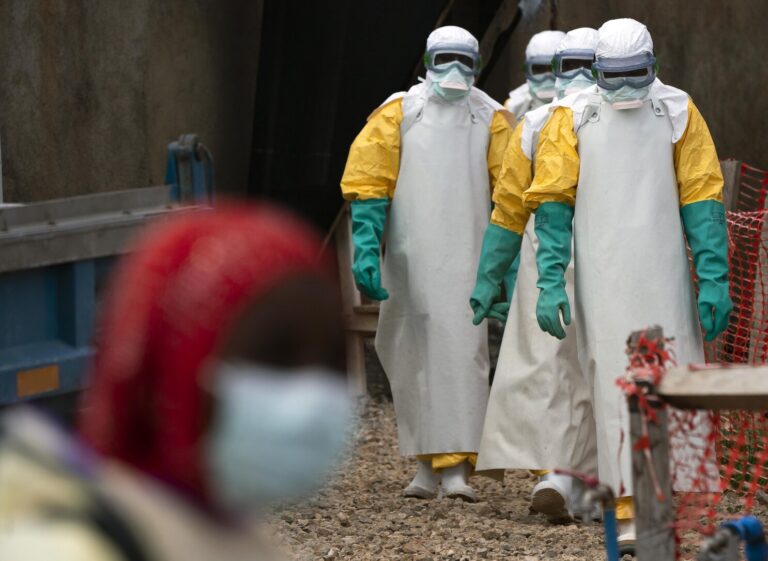The authorities in Lagos, Nigeria’s economic capital, have stepped up health security measures in the state following the resurgence of Ebola Virus Disease (EVD) in the Democratic Republic of Congo (DRC).
According to the World Health Organization (WHO), 28 suspected cases have been reported in the DRC, including four health workers since 20 August when the first case was recorded. The deadly virus has reportedly claimed 15 lives in less than three weeks.
To prevent the disease from crossing into Nigeria, Lagos announced the activation of the Incident Management Structure (IMS) of its Public Health Emergency Operations Centre (PHEOC).
READ ALSO: Lassa fever kills corps member in Ogun
The decision came after an emergency meeting held on 9 September at Mainland Hospital, Yaba.
A statement signed by the Lagos State Ministry of Health Director of Public Affairs, Tunbosun Ogunbanwo, on Wednesday, explained that “at the meeting, an epidemiology overview of the DRC outbreak was reviewed, while pillar leads presented a preparedness checklist spanning infection prevention and control (IPC), surveillance, contact tracing, case management, laboratory capacity, evacuation, risk communication, budget and logistics.”
The statement quoted the Permanent Secretary of the Ministry of Health, Dr Olusegun Ogboye, represented by Dr Ismail Abdus-Salam, saying “the isolation centre in the state is ready, surveillance is superb, and laboratory capacity is intact. Training of officers in surveillance.”
Ebola fact sheets and advisories have also been validated for circulation across public and private health facilities.
While there are no direct flights from DRC to Nigeria, officer-in-charge of Port Health Services, Dr Abdullahi Lawal, said his team members are monitoring travellers from neighbouring countries like Rwanda, as high-risk passengers will be subjected to enhanced screening on arrival.
READ ALSO: Lassa Fever: Ondo tops infections chart as Nigeria records 103 deaths
Lawal noted that airport stakeholders, including immigration and customs officials, are being trained to detect EVD symptoms quickly.
The government further advised hand hygiene, environmental sanitation and prompt medical reporting as critical steps for the public.
About Ebola
Ebola is a severe illness caused by the Ebola virus, with a case fatality ratio averaging 50 percent, according to WHO.It spreads through direct contact with bodily fluids of infected individuals or contaminated surfaces. Symptoms include fever, fatigue, sore throat and muscle pain, followed by diarrhoea, vomiting and, in severe cases, bleeding and organ failure.
The incubation period ranges from 2 to 21 days, and while patients are not infectious during this period, they become contagious as soon as symptoms begin.
Families, caregivers, health workers and those involved in burial ceremonies are considered at high risk of contracting the virus.


